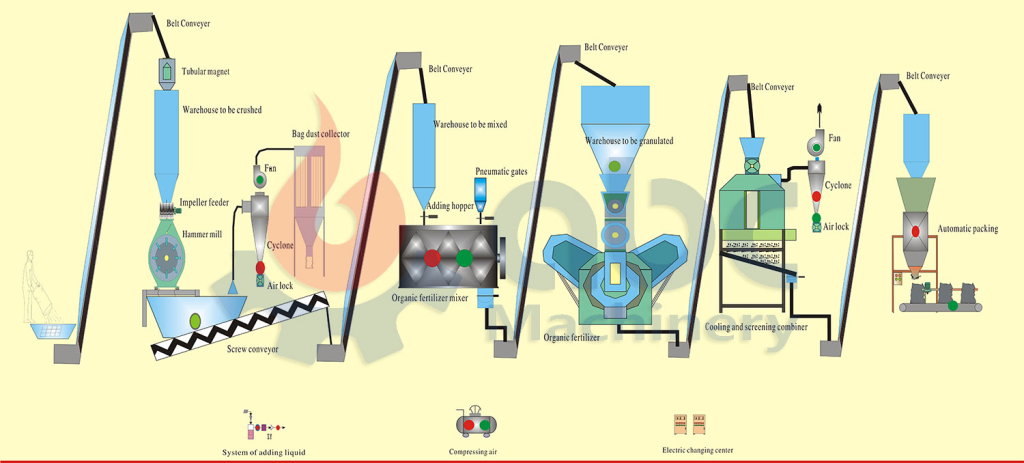Establishing an organic fertilizer production line is an ideal transfer towards sustainable and environmentally-friendly agriculture. The procedure involves producing nutrient-rich fertilizers using natural materials such as for example compost, animal manure, seed deposits, and other normal substances. Among the main advantages of a natural fertilizer production range is their responsibility to ecological balance. Unlike compound fertilizers that can hurt the soil and water quality as time passes, natural fertilizers enhance earth framework, promote biodiversity, and decrease the danger of environmental pollution.
The building blocks of a natural fertilizer creation line lies in the composting process. Composting, an all natural decomposition of organic subject, turns fresh components in to nutrient-rich humus. That humus becomes a key ingredient in organic fertilizers, giving essential aspects like nitrogen, phosphorus, and potassium, as well as a number of micronutrients vital for seed growth. Composting not just recycles normal waste but in addition harnesses their full possible to nourish crops with no negative environmental impacts related to artificial fertilizers.
The creation line an average of includes machinery and equipment built to efficiently method organic components and change them in to your final natural fertilizer product. Crushers, machines, granulators, and testing products are normal parts, each enjoying a specific position in the generation process. The cautious variety and usage of these models donate to the effectiveness and scalability of the normal fertilizer manufacturing line.
Quality get a handle on is a essential aspect of natural fertilizer production. Rigorous screening guarantees that the ultimate solution matches business requirements and conforms with normal certification requirements. The absence of dangerous substances in natural fertilizers makes them a preferred choice for environmentally conscious farmers and plays a part in the entire safety of the foodstuff source chain.
In addition to the environmental benefits, natural fertilizers contribute to earth wellness and long-term agricultural sustainability. They improve land design, water retention, and microbial task, producing an setting favorable to balanced place growth. That, consequently, increases plant resilience, reduces the requirement for compound inputs, and promotes an even more healthy and tough ecosystem.
Effective organic fertilizer generation lines are built on principles of resource efficiency and spend reduction. Recycling normal spend products into useful fertilizers diminishes the environmental affect of waste disposal and plays a role in a circular economy. By converting organic deposits into nutrient-rich fertilizers, the production point represents a position in reducing the entire carbon footprint related to agriculture.
The campaign of natural farming techniques is strongly tied to the concept of regenerative agriculture, focusing the restoration of land health and biodiversity. Normal fertilizer manufacturing lines play a pivotal position in encouraging regenerative practices by providing farmers with the equipment to enrich their soil naturally. This aligns with the broader worldwide chicken manure processing equipment towards sustainable agriculture, acknowledging the interconnectedness of healthy soils, nutritious crops, and ecological well-being.

In conclusion, a natural fertilizer generation line shows a careful and forward-thinking method of agricultural practices. By harnessing the energy of natural techniques, recycling normal spend, and prioritizing earth wellness, these production lines donate to a more sustainable and strong agricultural ecosystem. Because the need for organic and sustainable farming methods continues to grow, natural fertilizer production lines perform an essential position in surrounding the ongoing future of environmentally-friendly agriculture.
